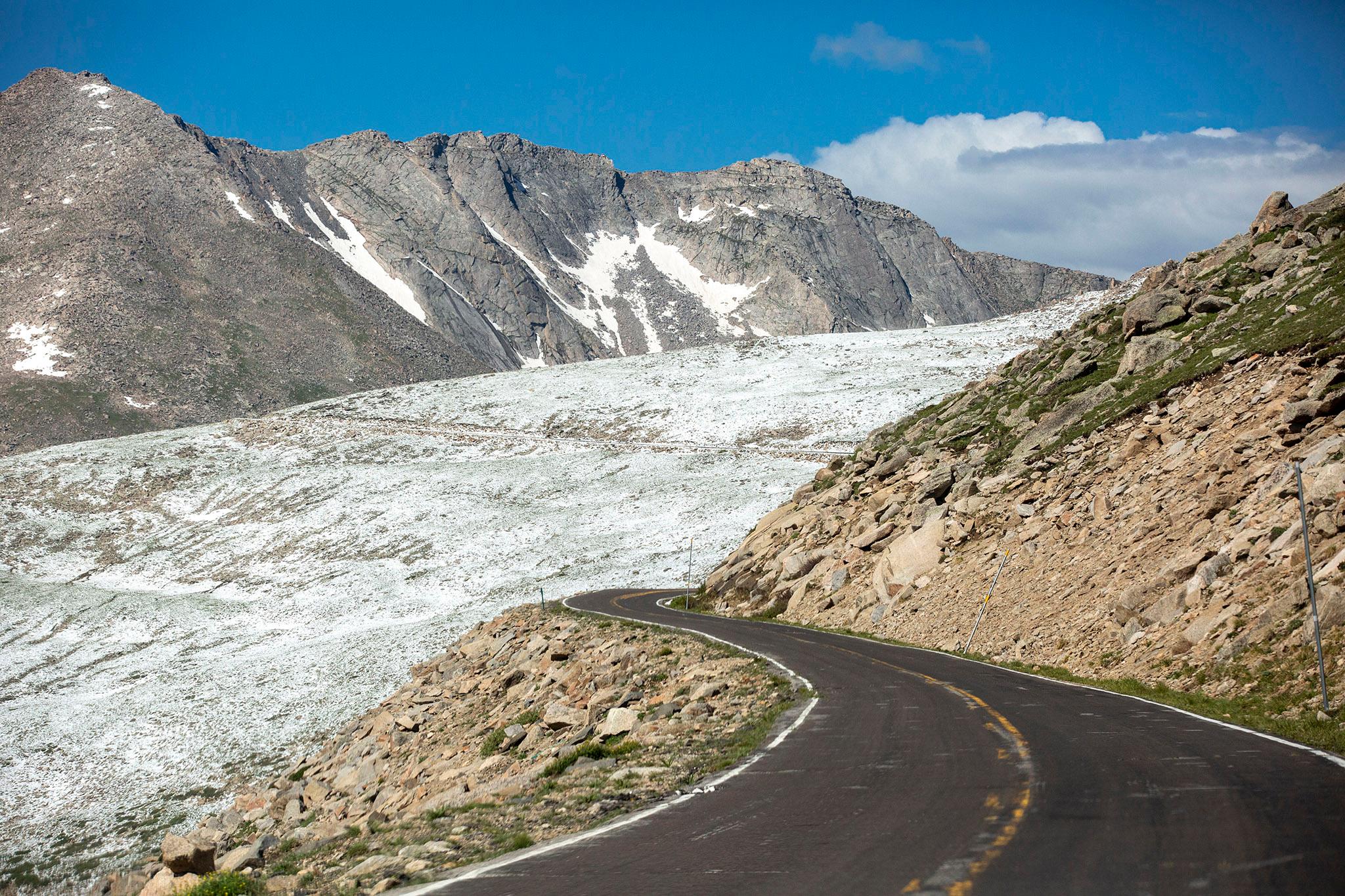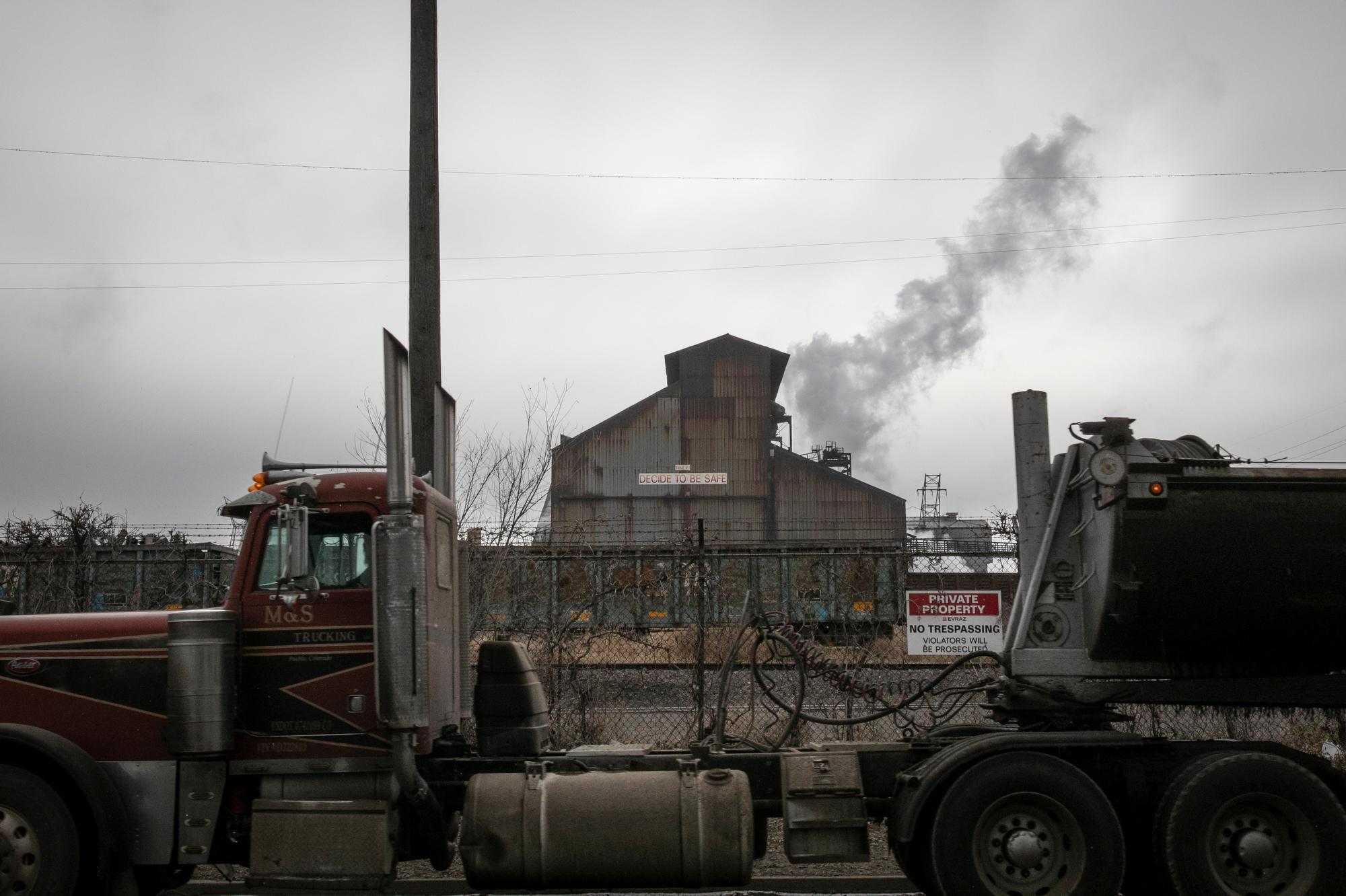
Mount Evans could soon be called Mount Blue Sky.
The Colorado Geographic Naming Advisory Board voted unanimously Thursday night to recommend the new designation, replacing the name of the controversial Colorado territorial governor who facilitated the Sand Creek Massacre of native families in 1864.
The recommendation will not immediately result in a new name. It first goes to Gov. Jared Polis. If he agrees, it would still need the approval of the U.S. Board of Geographic Names. That process will continue through 2023.
But the board's accelerated, surprise vote was nonetheless significant for tribal representatives who have fought for years to take Evans' name off the mountain.
“I was ecstatic, I couldn’t believe it," said Fred Mosqueda, a tribal elder of the Southern Arapaho who put the new name into formal consideration. "It was great . . . It was great!”
Located in Clear Creek County and looming over metro Denver at 14,267 feet, Mount Evans is home to the highest paved road in North America. It is named after John Evans, a territorial governor of Colorado who is widely considered responsible for at least providing the rationale for the massacre. On November 29, 1864, the U.S. Army raided an encampment in Southeastern Colorado occupied by unsuspecting Cheyenne and Arapaho. An estimated 230 of them, mostly women, children and elders, were killed.
At a Zoom meeting Thursday night of about 75 people, “we had presentations from the proponents, took public comment, and at the end of public comment, the board had a conversation,” said deputy director of the state Department of Natural Resources, Tim Mauck, who led the meeting.
Public comment lasted about 40 minutes, with most people expressing support for the name Mount Blue Sky. Board members quickly agreed not to put the vote off for the next meeting, and verbally each member signaled their agreement.
“Feeling that we’ve had enough information, [since] there’s been a solid amount of conversation and discussion, the board voted unanimously to the proposal recommending the name of Mount Blue Sky in exchange for Mount Evans,” Mauck said.
At an earlier meeting, Mauck said he expected that the process could take one or two months longer, with the public comment at the end of Thursday’s meeting being put off for a meeting either in December or January. Because the public comment lasted less than an hour, there was time to vote during the same gathering.
The board now has 14 members, who listened to five different presentations, the first of which was for Mount Blue Sky.
“You’ve all heard me speak many times,” Mosqueda said during a five-minute presentation. “I think the best name is Mount Blue Sky because it means so much as a ceremony to the Cheyennes.
“It’s the same name that some people still call my tribe.”
After the meeting, he said in a telephone interview that Blue Sky is the name of an annual springtime ceremony celebrated by the Southern Cheyenne during their sun dance.
“It’s a renewal of everything living; when I was younger, I got the opportunity to see it; it’s an amazing thing," Mosqueda said. He added that “some tribes call Arapahoes ‘Blue Sky People,’ so that’s how it pertains to the Arapaho and the Cheyenne.”
The other name that seemed to have some interest was Mount Cheyenne-Arapaho, presented at a previous meeting by Northern Cheyenne tribal representative Otto Braided Hair Jr., who did not attend the Zoom meeting Thursday night. When Mauck asked if anyone else was there to speak up for that name, no one did.
Other contending names – Mt. Soule, Mt. Rosalie, Mt. Sisty and Mt. Evans (after a descendant of the former territorial governor) – were presented as well, but none seemed to stand much of a chance. During public comment, attendees who self-defined as Native American repeatedly mentioned that naming the mountain, one of nature’s creations, after a human being was widely seen as disrespectful. No one had any in-depth questions for proponents of those options, and no one objected to stripping the name Evans from the mountain.
As the public waited for the board to decide whether to put the name change to a vote, Mosqueda crossed his fingers.
“I was thinking, ‘Is she really gonna do this? Is she really gonna do this?’ Mosqueda said, about whether a board member would call the vote before adjourning the meeting.
And when she did, the vote was unanimous.









